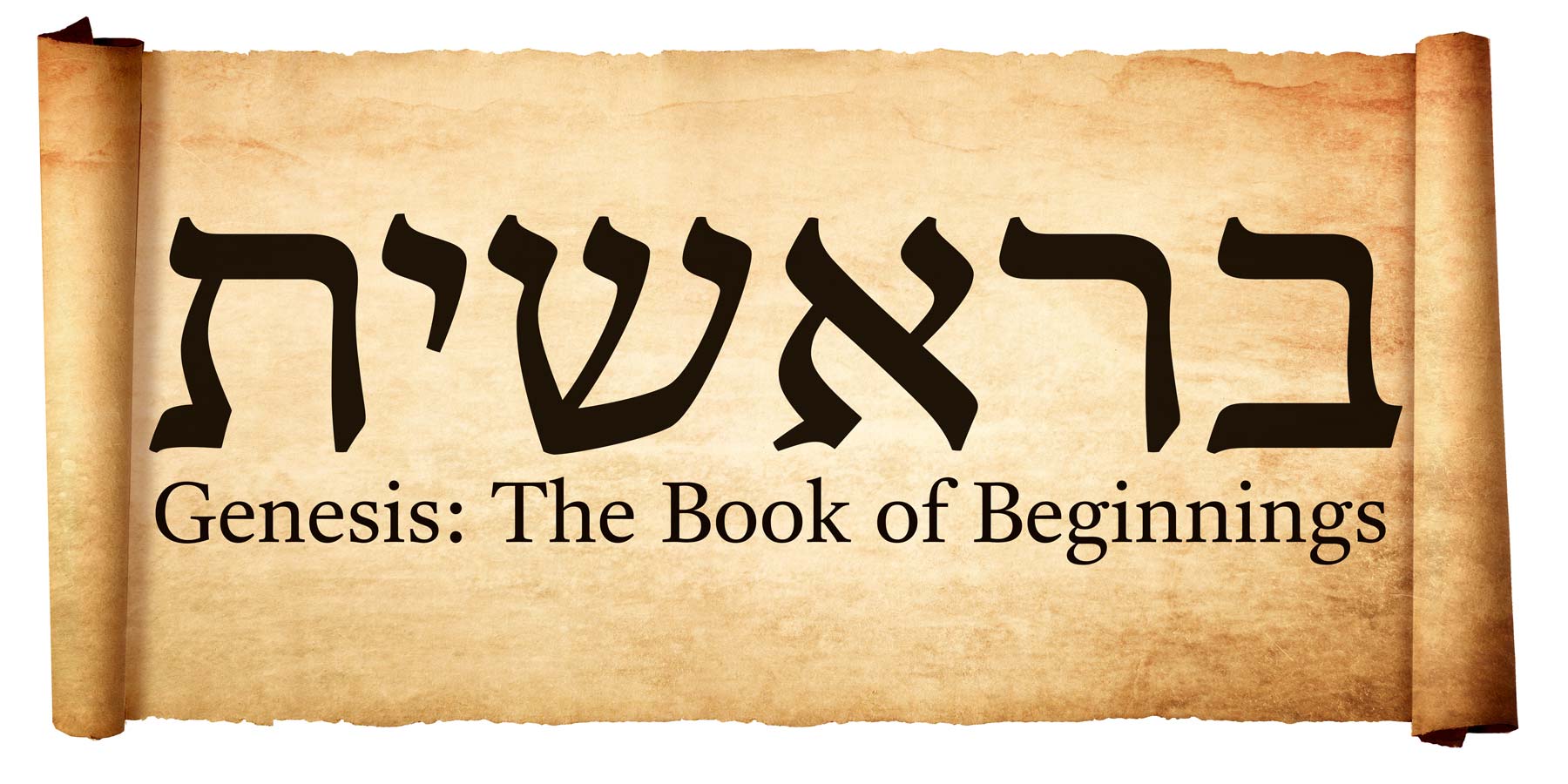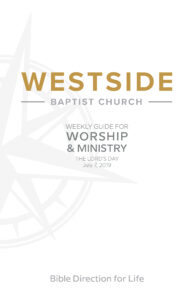Genesis Week Five | 4:1–4:26
Prayerfully read Genesis 4 at least two times and then read the following notes.
Context: Setting the Table
Following the magnificent introduction of 1:1–2:3, the first of the ten sections of Genesis (2:4–4:26) details the “history of the heavens and the earth.” After relating how abundantly God provided for his image bearers (2:4–2:25), Moses told the sad tale of our first parents’ rebellion against their Creator (3:1–3:24). Chapter 4 concludes this first section with an account of Cain and his ever-worsening line of descendants.
Content: Reading the Text
(4:1–16) Cain and Abel
(4:1a) Despite the difficulties brought in by mankind’s rebellion, God’s command in 1:28 to “be fruitful and multiply” continued (and continues) to remain in effect.
(4:1b) Cain’s name sounds like the word translated as “gotten.”
(4:1c) Eve’s description of her newborn son as a “man” is without parallel in the Hebrew Bible.1 Just as the woman came from the man (Genesis 2:22) so now a man came through the woman ( 1 Corinthians 11:12). See further under v25.
(4:1d) This is the first time the Divine Name (LORD) is found on the lips of a human being.
(4:2) Abel’s name is a common Hebrew noun that means “vanity” (Ecclesiastes) or “breath.” Given the shortness of his life, his name was eerily appropriate.
(4:3) The word that is translated as “offering” (here and throughout the passage) almost always refers to a grain offering rather than an animal sacrifice (Leviticus 2). As grain offerings played a regular role in the tabernacle worship, there does not seem to have been anything intrinsically wrong with Cain presenting such an offering to the LORD.
(4:4) While there has been much speculation as to why God accepted Abel’s offering and not Cain’s, it is important to note that the text of Gene- sis does not tell us. We do know from Hebrews (11:4) that the fundamental difference between Cain and Abel was one of faith. It is likely significant that God is said to have had respect first unto the person of Abel and secondly to his present. Whatever the external deficiencies of Cain’s offering (if any), the fundamental issue was the rebellion God saw in his heart (1 Samuel 16:7).
(4:7) Due to its unusual vocabulary and grammar in the Hebrew text, the precise sense of this verse is difficult to determine with certainty and the details have therefore been debated since long before the time of Christ. A few brief points must suffice. (a.) It is, for a number of reasons, exceedingly unlikely that “sin” should be understood as a “sin offering,” as has sometimes been suggested. (b.) The “him” that Cain is told he could rule over in the final clause could be understood either as sin (though sin desires to rule Cain, Cain should rule over it instead) or Abel (though Cain is crestfallen because Abel was accepted rather than him, repentance could restore Cain to his rightful place of rule as the elder brother). (c.) Despite these and other difficulties, the primary point is clear—the LORD is re- sponding to the fallen countenance of Cain and pointing him toward the path of repentance, a path Cain will resolutely reject.
(4:8) The rebellion that began with the stealing of a piece of fruit quickly escalated to murder. When we choose the path of rebellion, we have no way of knowing when and how our journey will end.
(4:9) As in Genesis 3, God is seeking a confession, not information. Whereas Adam had responded with an evasive excuse, Cain responded with a brazen lie.
(4:10) Though Abel’s voice was silenced by Cain’s murderous rage, his innocent blood continued to cry out for justice. Though we may not know “how long” (Revelation 6:10), we do know that our LORD will surely avenge the innocent blood that continues to be shed in our own day.
(4:11) In response to the rebellion of Adam and Eve, God placed a curse on the serpent and the ground but not on Adam or Eve directly. This is the first time a “curse” is placed directly on a human being.
(4:14) From Cain’s concern, it is clear that Adam and Eve had likely had a great number of other children by this point.
(4:15) It is important to note that the “mark” of Cain was a mark of protection, a sign that was given to Cain as an individual and not to his descendants or anyone else.
(4:16) “Nod” is another form of the word translated as “vagabond” in v12 and v14.
(4:17–24) Cain’s Descendants
(4:17a) “Genesis always records the descendants of the unfavored sons before the elect line. The genealogies of Japheth and Ham precede that of Shem (chapter 10); Ishmael’s genealogy precedes Isaac’s (25:12–34); and Esau’s, Jacob’s (chapters 36–37). So here the genealogy of Cain precedes Seth’s (4:17–5:32).”2
(4:17b) Cain’s wife could only have been one of his sisters, something that was not prohibited until the giving of the Mosaic law (see also Genesis 20:12).
(4:17c) It seems likely that, in building a city, Cain was continuing to rebel against God by resisting his exile as a wanderer. It is also possible that, “Cain’s act of city building is an attempt to provide security for himself, a security he is not sure that God’s mark guarantees.”3
(4:19) Lamech is the seventh generation from Adam through Cain, just as Enoch is the seventh generation through Seth—both of them receive particular attention in their respective genealogies.
(4:20–22) In attributing these inventions to ordinary human beings, Moses is silently contradicting the rest of the ancient world, which universally attributed them to divine or semi-divine figures.4 We should also see the common grace of God (Matthew 5:45) at work—despite the wickedness of the line of Cain, they still made significant contributions to society and for that we can give God thanks.
(4:23–24) While the precise details of the story that lies behind Lamech’s song of triumph are somewhat difficult to make out, it is clear that Lamech is boasting of a violent vengeance that goes far beyond that of his ancestor Cain.
(4:24) In Matthew 18:22, Jesus directly alludes to the boastful vengeance of Lamech (the numerical expressions are identical in Greek). The followers of Jesus are to pursue forgiveness as relentlessly and excessively as Lamech pursued vengeance.
(4:25–26) The Birth of Seth
(4:25–26) As with many of the sections in Genesis, this ends with a “preview” that links it with the following section.
(4:25a) “Seth” is a form of the word translated as “appointed.”
(4:25b) This is the first use of the word “seed” since Genesis 3:15. Eve’s words shed a striking light on what she had hoped for when Cain was born (4:1). No matter how deep the darkness of rebellion became, God continued to keep alive the hope that someday, somehow, he was going to put everything right
(4:26) In the prologue of Genesis (1:1–2:3), the name “God” appears 35 times. In this first of the ten sections (2:4–4:26) God is referred (either as “God,” “LORD,” or “LORD God”) an additional 35 times. It is unlikely to be a coincidence that this key verse contains precisely the seventieth mention of God. This is only the most striking of a number of similar patterns in these chapters—the structure of the Pentateuch is astonishingly intricate!
Credo: Believing the Truth
Eve was exultant. She had gained a son! Perhaps Cain would be the seed the Lord had promised, the one who would undo the devastation their rebellion had unleashed. She was mistaken. In a fit of jealous rage, Cain murdered his brother Abel, deepening the curse and launching a line of descendants that seemed to grow worse with each passing year. Yet no matter how deep the darkness became, it could not and would not extin- guish a hope that God himself continued to keep alive.
Conduct: Reshaping Our Walk
Discuss the meaning of the text and then walk through the following application questions as you discuss the difference this meaning ought to make in our lives today.
Jealousy does not have to lead to murder to be destructive. What are some of the ways in which we, even as followers of Christ, can give way to jeaousy when the Lord seems to bless others more than he does us?
Examples: Enviously wishing we had the obedient/talented/success- ful children of someone else we know; Assuming that others are always hypocrites who don’t deserve the blessings they’ve received.
Though Eve’s exultation over the birth of Cain turned out to be sadly misplaced, God’s plan of redemption was neither derailed or detoured. How might we be tempted to needlessly lose hope because of the challenges we face in our own day?
Endnotes
1. Sarna 1989, 32
2. Wenham 1987, 97
3. Hamilton 1990, 238
4. Sarna 1989, 35
For a PDF of these notes click here.




